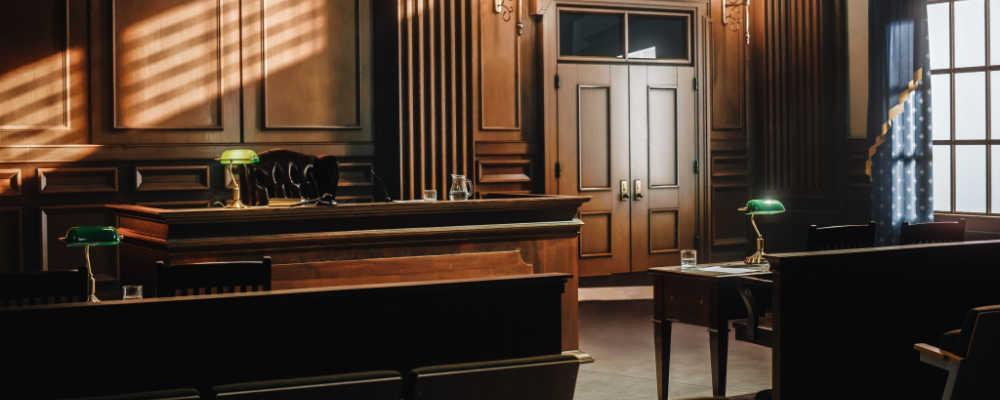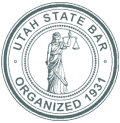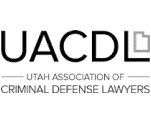The Utah Criminal Process

Criminal Defense Attorneys in Salt Lake City
At the criminal defense law firm of Collins Rupp, P.C., we know that the Utah justice system can be very intimidating, especially if you have never dealt with it from the inside before. When you have been charged with a crime, the legal process ahead of you can be broken down into three basic parts: pre-trial, trial, and post-trial. Our attorneys are fully equipped to help you understand what to expect and to remain at your side every step of the way.
District Court and Justice Court
Typically, felony charges and charges for Class A misdemeanors are handled through Utah's District Court system. There are eight judicial districts in the state. Lower-level misdemeanors, ordinance violations, traffic violations, and small claims are handled by the Justice Court system overseen by county judges or municipal judges, depending on the specific jurisdiction.
The Pre-Trial Stage
If you were arrested on suspicion of a criminal offense, you should have been advised of your rights by means of the Miranda Warnings before being questioned by the police, regardless of the severity of the charges against you. There are slightly different pre-trial steps for a felony prosecution compared with the prosecution for a misdemeanor or lower-level offense:
- Preliminary Hearing: For a felony charge, you will be notified of the charges and your rights throughout the process, and you will be offered a preliminary hearing. Presuming that you do not waive it, the preliminary hearing is the first opportunity for prosecutors to offer evidence and witness testimony in an attempt to show there is probable cause to believe that a crime was committed and that you were the one who committed it. If the judge agrees that probable cause exists, the case moves forward. If not, the charges will be dismissed, though they could be amended, and a new hearing may be requested.
- Arraignment:The next step in a felony prosecution—and the first post-arrest step for a misdemeanor case—is your arraignment. At your arraignment, the charges against you will be read on the record in open court, and you will enter a plea. A guilty plea—or a "no-contest" plea or an Alford plea—will move the case into the sentencing phase. If you plead not guilty, the case will continue toward trial.
- Bail Hearing or Bond Hearing: Following a felony arraignment, there is likely to be a bail hearing, sometimes called a bond hearing. At this hearing, the judge will set the conditions for you to be released while awaiting trial. These conditions might include collateral, behavioral restrictions, or both.
- Pre-Trial Conference:The vast majority of criminal cases in the state of Utah never make it to trial. While some are dismissed outright, most cases are resolved through negotiations and plea deals between prosecutors and the defendants—generally through their attorneys at pre-trial conferences. Any plea deal or agreement must be approved by the judge. If a plea deal is out of the question for you, pre-trial conferences can be waived.
The Trial Stage
If there is no plea deal made, the case will be set for trial. All criminal defendants have the right to a trial by jury, though it is possible to ask for a "bench trial" or a trial that is decided entirely by a judge.
- Jury Selection: A jury trial begins with jury selection, during which prospective jurors are asked a series of questions about their backgrounds, beliefs, values, and more. Lawyers for the prosecution and the defense are directly involved with the voir dire process and selecting the jury. Once the jury has been seated, the trial can start.
- Trial:Television and movies often over-dramatize courtroom trials, but the substance of such presentations is not too far off the mark. At trial, the prosecution will present arguments and evidence to convince the finder-of-fact—that is, the jury or judge—beyond a reasonable doubt that you committed the offense in question. Your defense team will present arguments and evidence to create reasonable doubt or to otherwise show that you should not be found guilty.
- The Verdict: Upon completion of a jury trial, the jury must return a unanimous verdict. If they cannot do so, a mistrial will be declared, and a new trial will be ordered. In the event of a not-guilty verdict, the case is over, though appeals are possible. If a guilty verdict is returned, the case moves on to sentencing.
The Post-Trial Stage
- Sentencing:Following a guilty plea or guilty verdict, the next step is sentencing. In Utah, the judge presiding over the case is responsible for setting the defendant's sentence in accordance with state law and sentencing guidelines. Even if you reached a plea deal with prosecutors, and they offered a certain sentence in exchange for your guilty plea, the final decision on sentencing is still up to the judge.
- Appeals:Either side has the right to appeal the outcome of the case if there is reason to believe that some type of mistake was made. A verdict or sentence that you disagree with is not a valid basis for appeal. Instead, for your appeal to be valid, you and your attorney will need to show that there was a procedural error, a misinterpretation of the law, a misapplication of the law, or some other type of flaw in the proceedings. Appeals can be taken all the way to the Utah Supreme Court or the United States Supreme Court.
Contact a Salt Lake City Defense Lawyer
For more information about the legal process for criminal cases in Utah, contact the office of Collins Rupp, P.C. today. Call 385-777-2753 for a free consultation. We will work hard to ensure that your rights and best interests are fully protected throughout the proceedings.

 385-777-2753
385-777-2753











